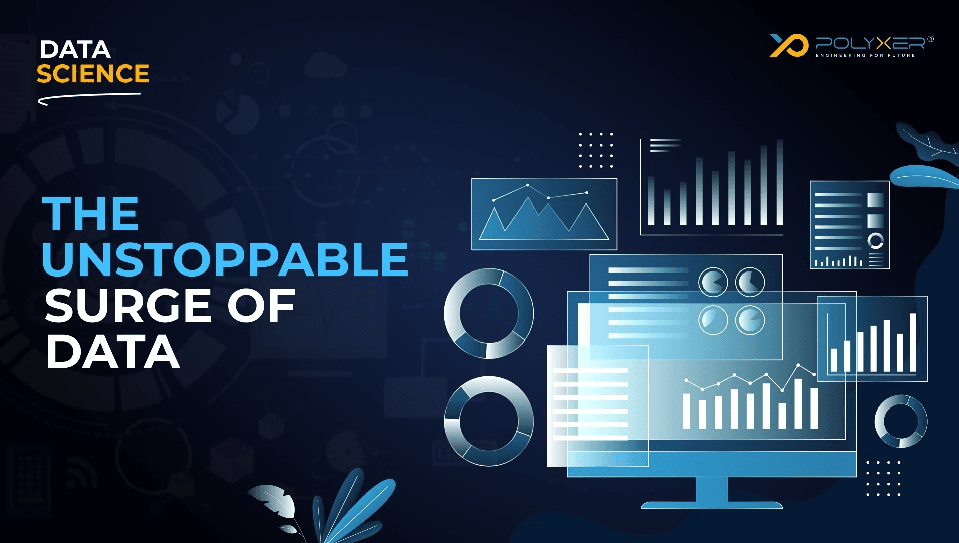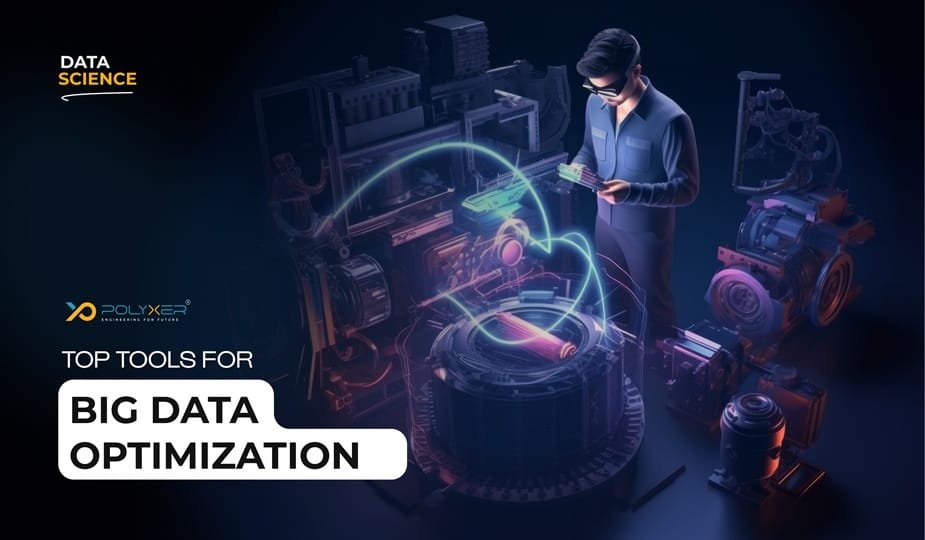
10 Common CI/CD Pipeline Mistakes and How to Fix Them

Complete Guide to Engineering Excellence in Data Pipelines
The importance of Big Data & Data Science cannot be emphasized more upon in this rapidly changing technological landscape. As the legendary Theodor Seuss Geisel, aka Dr. Seuss, said, “Sometimes you will never know the value of a moment until it becomes a memory”. This could not be more true for the age of Big Data & Data Science we live in now with all of this data revolution.
According to Statista, the volume of data created, captured, copied and consumed globally is projected to soar to 175 zettabytes by end of 2025. For the next five years, until 2030, it is expected to be more than 2,142 zettabytes of data created globally. By 2020, The data generation volume reached an all-time high, overtaking previous forecasts. This unexpected spike was driven mostly by increased home use in multiple devices due to the COVID-19 pandemic, as the world was transformed into the mandatory working and learning from home and began seeking home entertainment.

The concept of data is not new. It has been vital to human history since ages ago. From ancient tally marks on bones to the Romans’ data stores, data travelled with humans all the way. The punch card invention and the data center setup have shaped the way of the current data processing world.
It’s that inherent itch of human species to evolve, leads to innovative products that backed by technology that enabled us to collect, analyze, and utilize data in ways that were once not even thinkable. This revolution is a major industry disruptor.
The Data Explosion
Data has always been the heart human progress. Nevertheless, technological developments have enabled a never-seen-before-increment in data generation and data capture. We are in an age of data explosion where the scope to utilize these resources is immense and the timeline to reap the benefit from this resource is even more crucial.
A Phenomenal Growth Story
While a lot of these metrics like that of internet and mobile user base have seen an exponential growth, the surge of data is insane. Over the last 20 years, the amount of data exploded in the range of 100,000 times to 150,000 times - one of the most incredible surges the world has ever witnessed. If we compare the data growth volume and growth story of human beings, we will be better able to understand how much power the data possess.
Let’s put this in perspective:
- In 2000 global Mobile subscriptions was only 961 million and figure soared to 8.89 billion by 2023 with a staggering increase of 825.5%.

- The world saw an increment of 1.5 billion internet users between 2018 and 2022 which brings the total number of users worldwide to 5.8 billion in just 4 years.

- The Internet of Things, however it has just started evolving so will reach upto 39.6billion devices connection by the year 2036.

Data is at the core of these advancements, quietly yet powerfully backing this growth. While, as we acknowledged the growing numbers of internet users and mobile subscribers, data found its way from the background to the fore, and is redefining the narrative in prominent ways.
The Age of Data: Exploring the Features of Digital World
In around the span of last 25 years, the data has completely changed the way we live, work, and interact with the world around us. It is not impactful; it is revolutionary. Since our lives are entangled with technology in such a way, it is impossible to escape from its impact. Here are some of the fundamental features of this digital era:
- New-age Customers: Current generation consumers are aware, tech literate, and grown up with the influence of technology are having immense number of choices available to them.
- Technology at the Core: It is no longer a support function; IT is something that is at the heart of every business which directly drives the need for organizations to innovate and build a very strong technological framework.
- Speed of Change: The technical advancement is happening at a breath-taking speed. Technologies such as AI, IoT, and blockchain are now spearheading the business discussions.
- Iterative Approach: Iterative or agile approach has become a mandate these days. The ability to adapt quickly is the key as it encourages the culture of learning and experimentation.
- Interdisciplinary Collaboration: Digital problems call for collaboration across departments-from finance to marketing-to build successful solutions.
- Explosion of Data: Most of the world’s digital data has been created in recent history, with the estimate set to double over the coming years. Such exponential growth is nothing short of a hockey stick growth curve that every investor dreams of.
SWOT Analysis of Data Explosion
Strengths
- Informed Decision Making: Large amounts of data enables organizations in business as well as healthcare to base decisions on data which enhances productivity and patient care.
- Competitive Edge: Leveraging big data in right combination with data science, organizations can achieve great insights into market trends, consumer behavior and operational efficiency.
- Innovation in All: Big Data & Data Science enables organization to perform predictive analytics, precision medicine, and real-time monitoring.
Weaknesses
- Data Security & Privacy Concerns: Higher data volumes attract higher risk of cyber threats and compliance challenges.
- High Infrastructure Cost: Managing, storing, transferring & processing the big data needs considerable amount of investment in relevant hardware.
- Data Quality Issues: Dirty or unstructured data can mislead decision with incorrect insights.
- Skills Gap: Big data & Data Science can not be used effectively due to a lack of data professionals and analysts.
Opportunities
- AI & Automation Integration: AI enable analysis can drastically improve decision-making across various industries.
- Healthcare Interoperability: The data sharing becomes way easier with Big Data & Data Science. This has direct positive impact on patient diagnosis and treatments.
- Edge Computing Growth: Presence of data near shore reduces the latency improves the real-time data processing.
- Data Monetization: This opens many different avenues for business to monetize data whether it’s Data as a Service or indirect options like optimizing the supply chain process.
Threats
- Regulatory Challenges: Stricter data privacy laws (GDPR, HIPAA) increase compliance burdens.
- Cybersecurity Risks: Ever growing data makes it more vulnerable to hackers and attracts more attacks.
- Scalability Issues: Higher the data volume more the storage, processing, networking resources needed. The demand only goes upwards with increasing data.
- Ethical Concerns: All the data can certainly contain the personal biases can be misused for surveillance or heads to misled results. For example, comments data from social media.
Future of Big Data
- IoT, AI & ML Evolution: More and more devices will get connected to the network and keep generating data. Gen AI & Agentic AI help of machine learning models, analysis of data will be automated to improve workflows in across industries.
- Edge & Quantum Computing: These technologies will improve the way data is being stored, transferred, processed and analyzed.
- Stronger Data Governance: Continuous updates in data governance technologies and frameworks will help innovation enabling privacy.
- Green Data Centers: The large companies have already started adopting the approach of having green data centers, For Example, located undersea or using sustainable energy to operate.
The Good News: We're Just Getting Started!
What we have seen is just the tip of the iceberg when it comes to realizing the potential of the businesses based on the technologies based on data. Becoming those leaders, those organizations that influence the emerging future is an incredible opportunity for the businesses.
Across time, about 90% of all data ever recorded was created in the last few years. This further emphasizes how much value we can uncover with the effective use of data. Optimization, personalization, improved experiences and new use cases are just a few examples of how major tech companies like Apple, Amazon, Google, Microsoft and Walmart, have achieved keeping the data at the core of their business models.
But for too many organizations, data remains a puzzle, yet to be completely unlocked. The domain is vast, opportunities are immense. And while data has already caused significant disruption, it also has the power to create even deeper universal impacts. The data revolution will have its own consequences that will bring changes to the world and we must be ready.
Conclusion: Unlocking the Potential of Data
In such rapidly changing landscape, organizations need to prioritize the decision making keeping the data in the center. In the data-first world, the big winners are those who mine the most value out of data. As we enter an age predominantly shaped by Artificial Intelligence & Advanced Analytics, the critical question is:
Are you ready to embrace the data revolution?
This article is also available here






